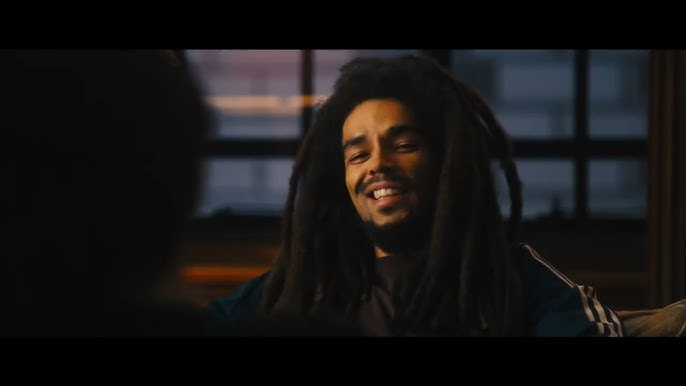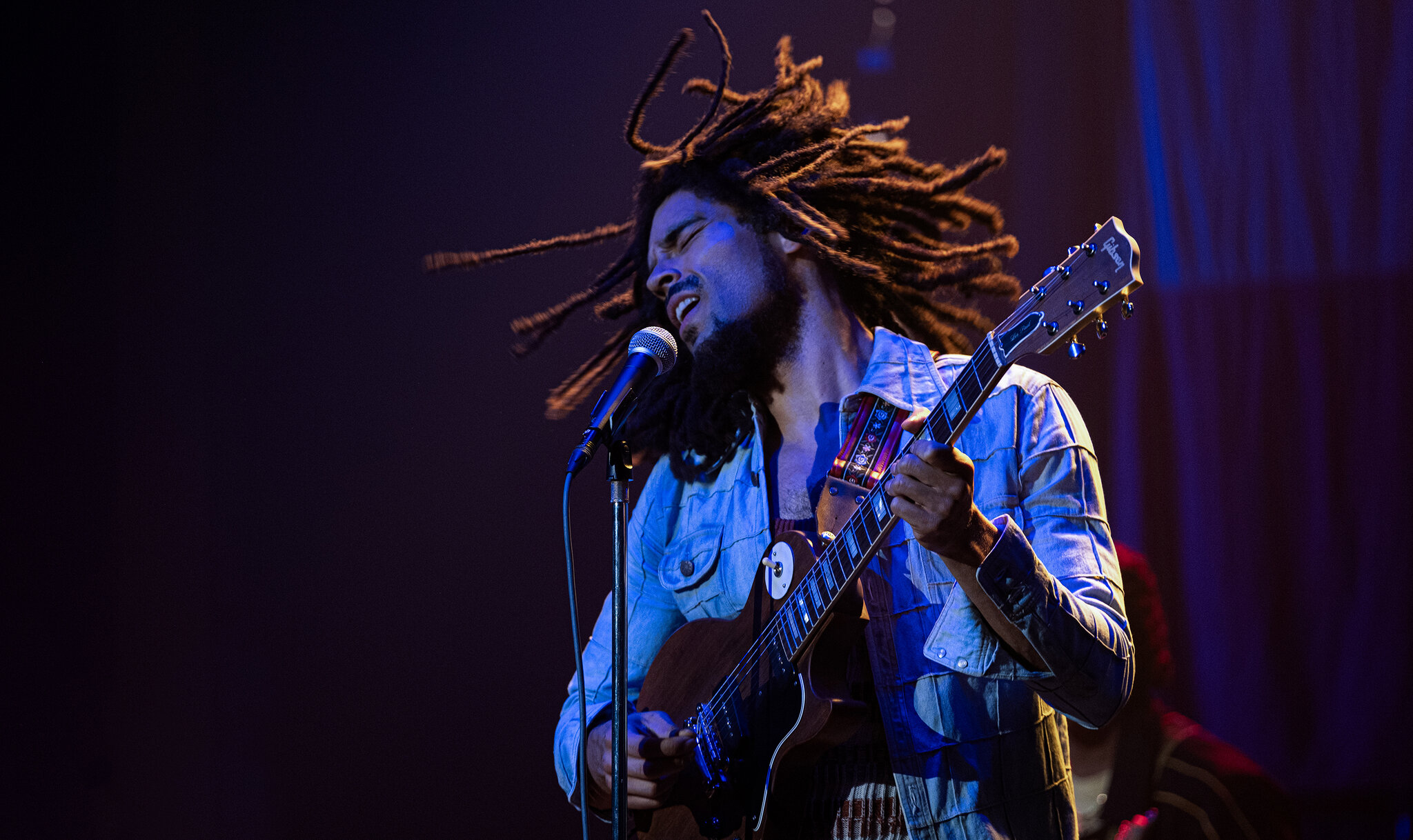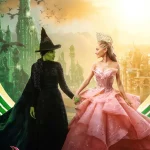Bob Marley: One Love (2024): A Celebration of Legacy, Music, and the Spirit of Revolution

Bob Marley: One Love (2024): A Celebration of Legacy, Music, and the Spirit of Revolution
Bob Marley: One Love (2024) is an eagerly anticipated biographical drama that explores the life and lasting impact of one of the most iconic musicians and cultural figures in history, Bob Marley. Directed by Reinaldo Marcus Green, this film is more than just a musical biopic—it is a vibrant celebration of Marley’s revolutionary spirit, his extraordinary music, and his ability to inspire social change through his art. The film offers an intimate look at Bob Marley’s personal life, his rise to global fame, and the enduring legacy of his messages of unity, love, and resistance.
Set against the backdrop of a turbulent period in Jamaica’s history and the rise of reggae music as a global force, Bob Marley: One Love focuses on the powerful intersection of music and activism that defined Marley’s life and work. Through a combination of archival footage, dramatic reenactments, and a soulful soundtrack, the film transports audiences into the world of this legendary figure, capturing both the man and the myth that continue to resonate with fans worldwide.
Plot Overview: The Making of an Icon
The film opens in the vibrant streets of Kingston, Jamaica, where Bob Marley (played by Kingsley Ben-Adir) grew up in a time of political unrest, racial division, and social inequality. As a young man, Marley was deeply affected by the poverty and social injustice around him, and it was through music that he began to find his voice. The film captures his early days in music, forming The Wailers alongside Bunny Wailer and Peter Tosh, and the struggles they faced in a music industry that was slow to recognize reggae’s potential.
As Marley rises to fame, One Love delves into the highs and lows of his career, including his breakthrough album Catch a Fire and the revolutionary sounds that soon made him a global sensation. The film also delves into his personal life, exploring his relationships with his family, his spirituality, and his deep commitment to the Rastafarian movement, which greatly influenced both his music and his worldview. Through his music, Marley became a voice for the oppressed, and his songs like “No Woman, No Cry,” “Redemption Song,” and “One Love” became anthems of peace, resistance, and unity for millions of people around the world.
One of the key elements of the film is its portrayal of Marley’s role as a unifying force in Jamaica. The film takes a deep dive into the political and social tensions of the time, particularly the notorious political violence between Jamaica’s two main political parties—the People’s National Party (PNP) and the Jamaica Labour Party (JLP). Despite being a musician, Marley was often thrust into the political turmoil of his homeland, as his music was seen as a threat to the status quo. His famous “One Love” peace concert in 1978, which brought together opposing political leaders, is a key moment in the film and highlights Marley’s power to use music as a tool for peace and reconciliation.
However, the film also explores the personal toll fame took on Marley. His relationships with his wife Rita (played by Lashana Lynch), his children, and his bandmates are tested as he navigates the pressures of fame, the demands of the music industry, and his own struggles with health issues. Marley’s journey toward his ultimate fight with cancer, which led to his untimely death at the age of 36 in 1981, forms a poignant and emotional element of the film’s latter half.
Themes: Unity, Resistance, and the Power of Music
Bob Marley: One Love is built around several key themes that define both Marley’s music and his life. The most central of these is the theme of unity. From his early songs with The Wailers to his later solo albums, Marley’s message was clear: in the face of adversity, people should come together. His call for solidarity among people of different races, backgrounds, and social classes was groundbreaking in the context of 1970s Jamaica, and his music continues to serve as a call for unity worldwide. The film showcases how Marley’s music transcended geographical, cultural, and racial boundaries, making him not just a musical figure but a global ambassador for peace.
Another key theme is resistance. Marley’s songs were filled with political messages that challenged authority and called for social change. His music was anthemic for oppressed people, and the film explores how his songs, such as “Get Up, Stand Up” and “War,” became a rallying cry for movements worldwide. The film does not shy away from the complexities of Marley’s activism, particularly his involvement in Jamaica’s volatile political scene and his refusal to shy away from conflict in order to maintain his artistic integrity.
Spirituality also plays a major role in the film, particularly in exploring Marley’s connection to the Rastafarian faith. His spiritual journey is intertwined with his music, and the film beautifully highlights how Rastafarianism gave him a sense of purpose and identity that was fundamental to his success. From his iconic dreadlocks to his reggae rhythms, Marley became an international symbol of Rastafarian values, such as peace, love, and resistance to oppression.
The theme of personal sacrifice is also explored, especially in relation to Marley’s health struggles. While his career continued to soar, Marley’s fight with cancer became a central element of his life in the final years, and his ability to continue performing while battling the illness only added to his legend. The film poignantly shows the emotional toll this battle took on him, especially as he was forced to reckon with his own mortality at a young age.
Cast and Performances: Bringing Bob Marley to Life
Kingsley Ben-Adir’s portrayal of Bob Marley is a standout aspect of the film. Ben-Adir, known for his roles in One Night in Miami and The Secret Garden, brings an intensity and depth to the role of Marley. He captures the magnetism and charm that made Marley a global superstar, as well as the vulnerability and determination that drove his artistic vision. Ben-Adir’s performance captures the essence of Marley’s charisma, his passion for music, and his deep commitment to the messages of peace and unity that defined his work.
Lashana Lynch, who plays Marley’s wife Rita Marley, delivers a nuanced and strong performance as a woman who is both a loving partner and a strong force in her own right. Rita’s role in Bob’s life, both as a supportive figure and a talented musician in her own right, is an essential part of the story. Lynch’s portrayal brings the emotional depth of Rita’s relationship with Bob to the forefront, adding layers to Marley’s personal journey.
The supporting cast is equally impressive, with standout performances from Michael K. Williams as Marley’s political ally, Tafari—a key figure in his Rastafarian beliefs—and Nina Sosanya as Marley’s manager, helping navigate the increasingly difficult pressures of fame.
Cinematography and Direction: Immersing Audiences in Marley’s World
The cinematography of Bob Marley: One Love brings the vibrant energy of Marley’s music and life to the screen. The film takes audiences on a visual journey through the streets of Kingston, the stage of famous concerts, and the serene beauty of Jamaica’s landscape. The director, Reinaldo Marcus Green, uses visual storytelling to underscore the political and social tension of the era, as well as the deeply personal moments of Marley’s life.
The integration of Marley’s music into the narrative is seamless and adds to the film’s authenticity. Iconic songs like “One Love,” “Buffalo Soldier,” and “Three Little Birds” are woven into the story at key moments, amplifying the emotional weight of the scenes. The way the music is used to not only underscore key moments but also tell its own story through the visuals is a testament to Green’s skill as a director.
One particularly striking moment is the depiction of Marley’s “One Love” peace concert, a defining moment in his life and career. The film does an excellent job of recreating the energy and atmosphere of this historic event, capturing the palpable tension between political leaders and the potential for music to be a unifying force for peace. The contrast between the vibrant music and the tense political backdrop highlights the transcendence of Marley’s message.
Conclusion: A Legacy Reimagined
Bob Marley: One Love (2024) is a film that honors not only Bob Marley’s legacy as a musician but also as a cultural and political icon. Through his music, Marley brought people together, challenging the status quo and encouraging his listeners to fight for justice, peace, and love. The film does justice to this complex figure, showing both the personal and public sides of Marley’s life, his struggles, and his triumphs.
In a world that continues to grapple with inequality, violence, and division, One Love serves as a timely reminder of the power of music to inspire change. The film’s exploration of Marley’s legacy—the way his music continues to inspire and unify people decades after his death—is a powerful tribute to a man who changed the world through his art.
Ultimately, Bob Marley: One Love is more than just a biopic; it is a vibrant celebration of the power of love, unity, and music. It is a reminder that Bob Marley’s message is timeless, and his influence will continue to inspire generations to come.











